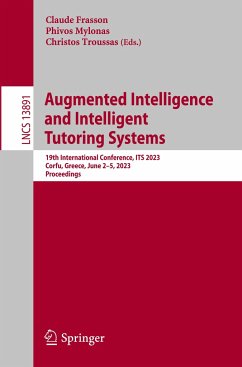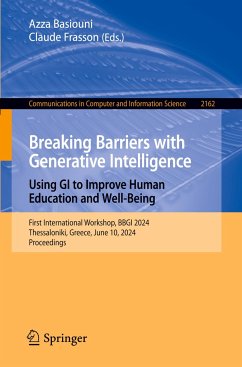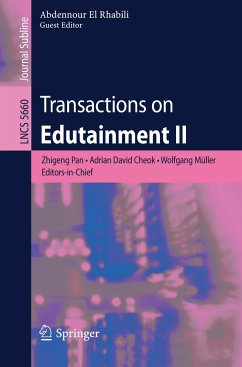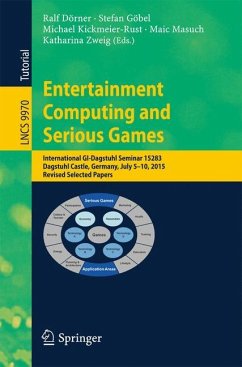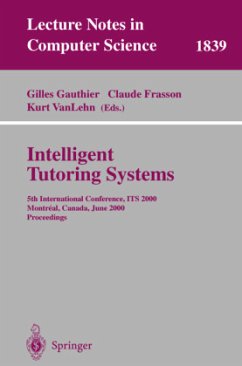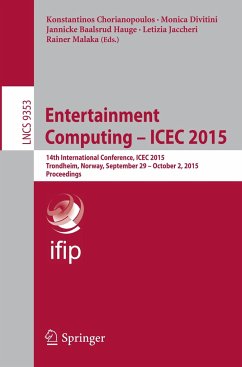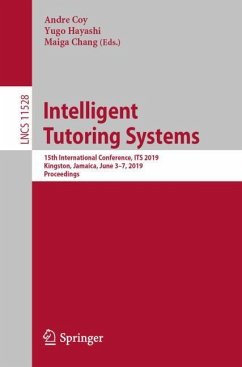
Generative Intelligence and Intelligent Tutoring Systems
20th International Conference, ITS 2024, Thessaloniki, Greece, June 10-13, 2024, Proceedings, Part I
Herausgegeben: Sifaleras, Angelo; Lin, Fuhua

PAYBACK Punkte
31 °P sammeln!
This book constitutes the refereed proceedings of the 20th International Conference on Generative Intelligence and Intelligent Tutoring Systems, ITS 2024, held in Thessaloniki, Greece, during June 10-13, 2024.The 35 full papers and 28 short papers included in this book were carefully reviewed and selected from 88 submissions. This book also contains 2 invited talks. They were organized in topical sections as follows: Generative Intelligence and Tutoring Systems; Generative Intelligence and Healthcare Informatics; Human Interaction, Games and Virtual Reality; Neural Networks and Data Mining; Ge...
This book constitutes the refereed proceedings of the 20th International Conference on Generative Intelligence and Intelligent Tutoring Systems, ITS 2024, held in Thessaloniki, Greece, during June 10-13, 2024.
The 35 full papers and 28 short papers included in this book were carefully reviewed and selected from 88 submissions. This book also contains 2 invited talks. They were organized in topical sections as follows: Generative Intelligence and Tutoring Systems; Generative Intelligence and Healthcare Informatics; Human Interaction, Games and Virtual Reality; Neural Networks and Data Mining; Generative Intelligence and Metaverse; Security, Privacy and Ethics in Generative Intelligence; and Generative Intelligence for Applied Natural Language Processing.
The 35 full papers and 28 short papers included in this book were carefully reviewed and selected from 88 submissions. This book also contains 2 invited talks. They were organized in topical sections as follows: Generative Intelligence and Tutoring Systems; Generative Intelligence and Healthcare Informatics; Human Interaction, Games and Virtual Reality; Neural Networks and Data Mining; Generative Intelligence and Metaverse; Security, Privacy and Ethics in Generative Intelligence; and Generative Intelligence for Applied Natural Language Processing.




